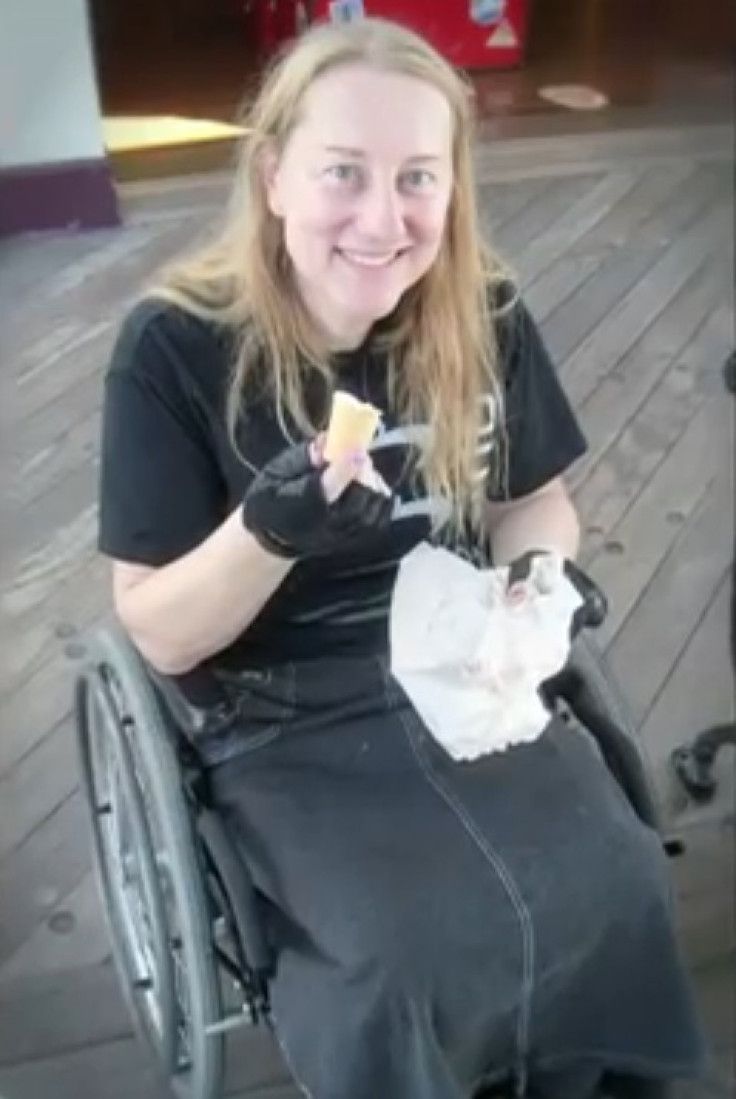Chloe Jennings-White: Woman With Body Integrity Identity Disorder Wants Surgery To Be Paraplegic [PHOTO]

Chloe Jennings-White wishes she was in a wheelchair without the ability to use her legs, and she is willing to get surgery to become a paraplegic.
The 58-year-old British-born woman who lives in Utah has Body Integrity Identity Disorder, a psychological condition where someone becomes fixated on a perceived physical flaw in their appearance. Jennings-White wants nothing more than to have her legs stop working.
“My dream is to find a surgeon who will operate on my spine to stop my legs working,” she told The Sun.
Three years ago she found an overseas doctor who offered to sever her sciatic and femoral nerves for $25,000. “I’ll never be able to afford it, but I know I won’t regret it if I ever can, and I don’t know why it upsets people,” she said.
Jennings-White voluntarily uses a wheelchair even though she is able to walk. “When I first sat down in the wheelchair, it just felt so right," she said. "It felt like somewhere I belonged.”
During childhood she purposely tried to hurt her legs. She rode her bike off a 4-foot-tall stage and broke five bones between the ages of 12 and 16, but her legs remained intact. “I felt happy even just risking my legs,” she said.
Jennings-White compares her condition to those with gender dysphoria, who wish to belong to the opposite sex. “It’s the same as a transsexual man having his penis cut off," she said. "It’s never coming back, but they know it’s what they want.”
Jennings-White says her desire to become a paraplegic stemmed from a visit to her aunt who had leg braces. “I wanted them, too," she said. "I wondered why I wasn’t born needing them and felt something was wrong with me because I didn’t have them.”
When she was nine years old she avoided the polio vaccine, hoping she would land up in braces like children who suffered from the disease. “I dreamed I might end up like them, but didn’t,” she said.
Those who have the disorder face public stigma. Mark Comer, a 54-year-old man who has BIID, says he wants to be cured of his disorder. "For some reason, it feels like there's a mistake in how my brain interprets my body," he told ABC News. “There was nothing in my mind other than getting rid of this effing leg."
Dr. Michael First, a research psychiatrist at Columbia University who coined the term BIID, estimates there are thousands in the United States wishing to be disabled. Websites like Ahiruzone.com and Transabled.org offer an online community for those who want to be disabled.
"The phenomenon starts in childhood in almost all cases," he said. "They go through life feeling chronically uncomfortable, miserable. The way that they should be is not the way that they actually are."
© Copyright IBTimes 2024. All rights reserved.












